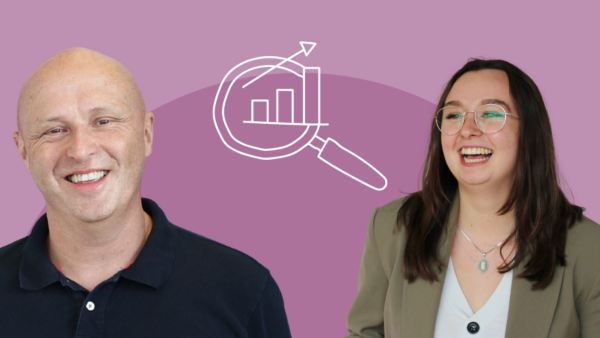During this global pandemic, most people have needed to adapt significantly to new ways of working and new ways of living that we haven’t had much choice over. Working from home, for millions of people, is just one of those adaptations. So now, many months on from the start of the pandemic, what have we learned about working from home well? About giving ourselves the best chance of bringing our best selves to our homeworking lives?
This podcast gives you my top tips for getting the best from homeworking as we head into… more of the same, at least for now.
How change happens
Humans are messy and complicated. We resist change, we hold on to familiarity, most of us experience change as pain – psychological and emotional. It costs us energy, we grieve for what we feel we’ve lost (the familiar and what we valued), and we find it hard to learn new ways.
But, humans are also extremely adaptable. Learning for us often comes subconsciously, in the background, as we resist the new, at the same time as knowing we need to get to grips with it. Before long, we actually get familiar and even quite skilled at navigating ways of working that we wouldn’t have touched, given the choice, even only a few weeks before. So let’s bring some consciousness to that usually subconscious experience of adapting to new ways of working at home. Here are my tips for getting the best from it.
Human connection
In my view, we’ve got pretty good at using screens for human connection. Whatever platforms you use, my bet is that you’re going to have been using them more during the course of 2020 and typically that’s going to mean you will have acquired skills around reading people’s emotion through a screen, learning how to communicate differently given the lack of non-verbal cues and listening more attentively.
However, we humans are super-social and physical human contact, and proximity, is a strong drive in all of us. So connecting in person should remain a priority for us all when we’re homeworking to make sure that we’re feeling that sense of social support and getting those all important neurotransmitters like oxytocin, which can help us to regulate mood and feel better about the world.
My number 1 tip, then, is to prioritise human contact.
Conscious consumption
When we’re homeworking, it can become all too easy to move onto social media in a habitual way and not really be present while we scroll and like and scroll and smile and click off and go somewhere else and then get lost. That numbing sensation that we get when we over-consume online content without really paying attention can be a signal that we’re using the tech to insulate us from something else.
So be more aware of why you’re using media and tech and regulate it yourself, because if you don’t, the app-makers will entice you into a never-ending cycle of engagement with the sole purpose of advertising to you, while you slowly slip into a social media semi-coma.
With this tip, Let’s also consider the more conscious consumption of what you’re choosing to view online, such as news, series and so on. I know that for some people, they have gone on a news-free diet for much of the past year in order to end up not feeling low as a result of never-ending doom-ridden newsfeeds. And for pandemic winners such as Netflix and other online media companies, they’ve got better and better at capturing us in their net of fascinating content by removing some of the natural cues that we would usually have to regulate our consumption, so we can end up bingeing without realising.
Being conscious of what we are doing is the habit to cultivate here. As Deepak Chopra says – consciously choosing freedom from the conditioned mind is the definition of enlightenment. If that’s a bit much, just know that taking control in a tech world that is trying to control you is really empowering and really important for your well-being.
Auditory hygiene
This one’s a biggie for me when working from home and for me, it doesn’t get enough of a mention. So we’re all unique right, everyone has a different level of tolerance for background noise and distraction, inside our homes – kids, TV, radio, for example, and for noise outside – traffic, building, neighbours.
We’re all distracted by different things and at different times. So try and get your auditory environment right for you. Earplugs can help some. Low level white noise can help others. Background music (headphones or not) can be a companion, or it can be a distraction. Observe yourself at your most focused times and check in on the noises you can hear – it may be that at those times, you’ve got your auditory environment about right.
Pick your productivity sprints
Again, everyone’s different. Some people prefer mornings for productive sprints, others prefer afternoons or evenings. So try and schedule your day as far as you can so that you can benefit from your natural levels of focus, energy and productivity. We can all manipulate these rhythms – getting exercise can help energise us for hours after, what we eat and drink can make a difference to whether we feel alert or drowsy. But we also each have a natural daily rhythm that we can make work for us if we know that rhythm well. So use it to your benefit.
Light it up
Light is really important for us to stay energised and maintain well-being, particularly at times of the years when daylight is less available. Daylight is a sleep and mood regulator, as it helps in production of melatonin and serotonin. It also helps us to produce Vitamin D, so getting enough light is vital.
When you’re homeworking, look for opportunities to get outdoors to get direct sunlight into you, even on dull days. When indoors, throw those curtains wide to maximise light into your working area. If you need, try a light box or take more control of your light environment. One of the main advantages of working from home is a greater opportunity to tailor your working space to your own needs, at least more than you can in an office or workplace.
Keep moving
I just mentioned the importance of exercise. It’s a natural anti-anxiety treatment, it relieves stress, it boosts your physical and mental energy, and it improves your emotional well-being by helping your body to produce endorphins. Walking away from your work space and moving around your home is good. Getting outside into nature, ideally tech free, is even better, even if only for 10 or 15 minutes. But frequent breaks to move your body, combined as well with regular more strenuous exercise, will make a big difference to your productivity levels when working from home.
Self-compassion
Be kind to yourself. This stuff is hard. Know that even just listening to a podcast, this podcast, is making a difference to you and often that’s enough. Congratulate yourself for getting through this day and our new weird but more normal world of work and for getting better and better at navigating these unprecedented, strange times.
Look after yourself, do the self-care. Tonight, I will be running a bath (I do this rarely, for environmental reasons, but I am going to do it tonight), I’m going to put in some bath soak stuff that I have actually bought for this very reason and I’m going to watch some telly, in the bath, consciously. That’s for me. No one else. And no one else will know.
Create your environment
Take the opportunity to create the work environment that you’re happiest with and keep happy with it. Make it you-shaped, make it nice for you. If you’re clutter tolerant, clutter away. If you’re not, keep on top of it so your surfaces remain clear. If you’re fond of natural things, get some plants in – they can give great opportunity for micro-breaks as you look beyond your immediate work area to something natural.
Organise your workspace so it works for you. As part of this, think about your Zoom background, make it communicate what you want it to communicate. Be that a desert island, or the Milky Way, your cluttered, or laundry-drying home-working space, a nice picture, or window or bookcase. Whatever it is, it says something about you and it’s ok to make a conscious choice about that too.
Conclusion – control the controllables
I’m struck by a theme that runs through many of these tips. You feel empowered when you take control over what you can control and don’t try to control what you can’t (like a pandemic). You have got this. We are doing this. And we are doing it together. Till next time, stay strong.
The Strengths Guy podcast is available on all major podcast platforms. Find it on Apple podcasts, Spotify, Google podcasts, Stitcher, ACast, TuneIn, Breaker and Soundcloud. Make sure to subscribe to get them at the start of the working week!












